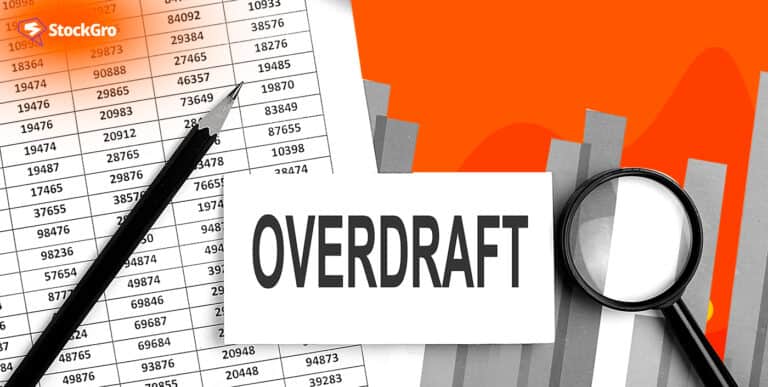
Selecting the right financing is essential for the expansion and longevity of a firm. Banks and other financial institutions offer term loans, which have variable interest rates and repayment terms. These loans can be broadly classified into two categories: short-term and long-term, each suited to a certain set of business requirements.
While long-term loans support significant investments like expansions or capital-intensive projects, short-term loans are best for immediate operating expenses or cash flow shortfalls. Making wise financial decisions requires knowing the differences between long-term and short-term business loans.
This blog aims to clarify these differences, assisting business owners in selecting the financing option that best aligns with their company’s goals and immediate needs.
You may also like: Managing Business Finances Effectively
Short-term business loan in India
The purpose of short-term business loans is to assist companies with pressing financial needs. These loans are perfect for paying for unforeseen costs, wages, and restocking of supplies, among other operating needs. Since short-term loans are often due back within a year, they offer a workable alternative to long-term finance.
Short-term loan interest rates can differ significantly based on the lender and the loan’s particular requirements. These loans are typically unsecured, which means that no collateral is needed. This makes the application process easier, but it also increases the risk to the lender, which could lead to higher interest rates.
A short-term company loan can be obtained quickly and easily, with little documentation required in most cases. Depending on the borrower’s financial situation and ability to repay, short-term business loan lenders may provide flexible repayment alternatives that let borrowers customise loan amounts and EMI (Equated Monthly Instalment) terms.
Short-term business loans come in several forms, such as demand loans, which give working capital with the freedom to repay at any time without incurring penalties, bank overdrafts that offer a flexible borrowing limit connected to a current account, and trade credit, which functions similarly to a credit card but for business purposes.
You may also like: Micro, Small and Medium Enterprises in India – Here’s all you need to know!
Long-term business loans
Long-term business loans are financial products that provide substantial sums of financing to companies hoping to grow or expand significantly. These loans are intended to finance large-scale undertakings like research and development costs or large purchases like property and machinery.
Typically paid back in monthly instalments, they offer businesses a structured payback management solution that fits their financial planning, with repayment terms ranging from a minimum of one to three years.
However, there are drawbacks to this kind of funding as well, such as the requirement for security to secure the loan against company assets. Although the long-term business loan interest rates are often lower than those of short-term loans, the longer repayment period means that a larger total interest payment will be made.
There is a lengthy paperwork process involved in applying for a long-term loan. A thorough company plan, financial statements, tax reports, and proof of collateral are usually required documents. Only companies with strong financial positions and well-defined expansion strategies will be eligible for these loans owing to the stringent application process.
Short-term vs. long-term business loan
| Parameter | Short-term business loan | Long-term business loan |
| Duration | Short repayment period | Long repayment period |
| Purpose | Immediate cash needs like inventory restocking, paying salaries | Significant investments like buying land, setting up infrastructure |
| Collateral | Not usually required | Often required (e.g., property,) |
| Processing time | Faster, can be within a few hours | Slower, can take days to a week |
| Documentation | Minimal (ID, income proof) | Extensive (bank statements, IT returns, property documents) |
| Interest rate | Higher due to short repayment period | Lower, but total interest paid can be higher over the loan term |
| Loan amount | Generally smaller | Larger, supporting big projects or purchases |
Also read: Financial Planning for Entrepreneurs
Choosing the right type of loan for your business
Selecting the right kind of loan for your company is an important choice that will have a big impact on its financial stability. A short-term or long-term loan is better depending entirely on the objectives, demands, and financial status of your company.
Usually, short-term loans are best suited for small business and used for meeting urgent financial demands or taking advantage of rapid income opportunities. The primary benefits of short-term loans are their quick availability and simple repayment schedules, even if they frequently have higher interest rates.
However, large investments that don’t yield income right away are typically better suited for long-term loans. Even though these loans have cheaper interest rates, they frequently call for collateral and have longer repayment terms.
In short-term vs long-term business loans, the choice between these two also hinges on the lender you choose to work with. Working with a lender who understands small businesses well and can provide flexible, customised financing alternatives is essential. Unique business demands are rarely best served by a one-size-fits-all strategy, so it’s critical to locate a lender who will tailor their loan products to meet your needs.
Bottomline
Choosing between a short-term and long-term loan ultimately comes down to weighing your company’s long-term growth goals against its immediate financial demands. Selecting the appropriate funding will be made easier if you are aware of the subtle differences between each type of loan and how they fit with your goals for the company.

